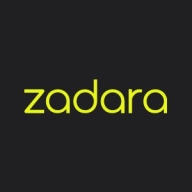


Dell PowerScale (Isilon) and Zadara compete in the data storage solutions category, offering a range of capabilities to serve various business needs. Although both have their strengths, Dell PowerScale excels in on-premises environments while Zadara offers superior cloud-oriented functionality, making it the favored choice for businesses with a strong cloud focus.
Features: Dell PowerScale stands out for its impressive scalability and ease of management, offering features like SmartQuotas and CloudIQ monitoring. The solution provides multi-protocol support, allowing seamless data access. Zadara differentiates itself with flexibility in deployment across hybrid and public clouds, robust data redundancy, and customizable drive options. It offers integration capabilities and a single-tenant model for enhanced security.
Room for Improvement: Dell PowerScale could benefit from improved object storage support and a streamlined update process. Load distribution and security features are areas noted for potential enhancement. Zadara could improve its object replication speed and refine its management interface for smoother operations. Both solutions can enhance their patch updates and cloud integrations.
Ease of Deployment and Customer Service: Dell PowerScale is widely adopted for on-premises deployment, often praised for its strong technical support. Zadara offers broad applicability with its hybrid and public cloud deployments, though its customer support receives mixed reviews. PowerScale's setup is known for robust support engagement, while Zadara provides scalable cloud-compatible solutions.
Pricing and ROI: Dell PowerScale, with a more traditional pricing model, is considered worthwhile for its comprehensive offerings despite its high cost. Users report positive ROI through centralized management. Zadara's pay-as-you-go pricing is straightforward, potentially more economical for scalable solutions. It avoids hidden costs, with users highlighting its flexibility and pricing alignment to ROI.
It does not require much management once you set up correctly, so it saves time, allowing an admin to focus on other work.
Despite being more expensive than Huawei, it is stable and most enterprises accept the price due to its stability.
In terms of Dell PowerScale (Isilon) specifically, we have seen a return on investment due to faster performance than our last few storage arrays, and the general usability is a lot better.
The second cluster of Dell PowerScale (Isilon) gives us flexibility for small things like code upgrades, all the way to scenarios where we have lost this data center or data, allowing us to check if data is still intact on the other side.
The cost is not cheaper compared to AWS, and we have not seen the expected return on investment.
I would rate them an eight out of ten.
The support is done through email and is not that great, making it a very problematic area I've been dealing with for over four years.
Their technical support has been perfect lately, so I would give it a 10.
Support online is definitely a ten out of ten.
Dell provides support within four hours, and they always fulfill their promises.
They have managed previous issues well.
We lack adequate response times and a 24/7 service level agreement.
I rate the technical support from Zadara as nine out of ten.
Pure Storage FlashBlade is scalable.
There are between 5 and 10,000 people using it in our organization.
We started on PowerScale with around about 300 terabytes and are now two and a half petabytes, still on the same file system.
That's really saved us in certain areas as we didn't have funding to expand Dell PowerScale (Isilon) until next year, which is why we utilized the cloud pools functionality to offload.
As an unstructured data storage solution, writing into it and accessing it from the other nodes is highly scalable with no issues.
Zadara is a fully-fledged platform, and our customers are happy with its use.
In case there is any issue with any blade, the data is moved to another.
Since we have good protection levels, the data is secured and replicated across the disks.
Even if a node goes down, other nodes can respond and provide data back to the user without issues.
I assess the stability and reliability of Dell PowerScale (Isilon) as perfect.
Technical support definitely needs significant improvement.
Its configuration should be easier.
One way Pure Storage FlashBlade can be improved is by having more compatibility between the FlashArray and FlashBlade.
Hardware failures under warranty should be addressed within the promised timeline.
I would want to see more AI features with Dell PowerScale (Isilon).
If I could improve one thing on Dell PowerScale (Isilon), it would be better object storage as it recently breached into S3, and that capability could be broadened.
Adding AI capabilities could enhance the offering as well.
Maintenance can also be complicated, especially when deeper troubleshooting requires navigating the CLI and searching for logs.
The pricing of Pure Storage FlashBlade is expensive compared to other products I used from other companies in the past, but one benefit is that they have built-in ransomware protection.
Regarding pricing, it is okay; we needed exactly this in size, and the price was a lot lower than competitors, making it good for us.
It's quite expensive for the amount of storage we have.
Cheaper nodes will cost less, while higher performance nodes will be pricier.
Costs align well with what it delivers, making it a fair price for a powerful tool that meets all our needs.
The pricing is considered expensive.
We can plug in many blades, and we can have data up to one terabyte.
The best features of Pure Storage FlashBlade include better throughput and better performance.
Pure Storage FlashBlade's scalability is one of the most valuable features, and importantly, it always works, allowing for seamless upgrades.
Dell PowerScale offers high scalability and stability as well, making it a valuable solution for enterprises.
In our AI initiatives, Dell PowerScale (Isilon) plays a significant role in data analysis, data fusion; principally, it is involved in data analysis, data extraction, and statistical analysis.
Single files are limited to four terabytes in our configuration, however, the system can support up to 16 terabytes, so we can scale based on that too.
The most valuable feature is its storage management capability.
Zadara's troubleshooting feature is very valuable for me.
| Product | Market Share (%) |
|---|---|
| Dell PowerScale (Isilon) | 7.1% |
| Pure Storage FlashBlade | 5.3% |
| Zadara | 0.8% |
| Other | 86.8% |

| Company Size | Count |
|---|---|
| Small Business | 11 |
| Midsize Enterprise | 11 |
| Large Enterprise | 21 |
| Company Size | Count |
|---|---|
| Small Business | 17 |
| Midsize Enterprise | 19 |
| Large Enterprise | 42 |
| Company Size | Count |
|---|---|
| Small Business | 12 |
| Large Enterprise | 4 |
FlashBlade is the industry’s most advanced scale-out storage for unstructured data, powered by a modern, massively parallel architecture to consolidate complex data silos (like backup appliances and data lakes) and accelerate tomorrow’s discoveries and insights.
Dell PowerScale leads in unstructured data management with unified file and object storage, massive scalability, security, and cloud adaptability, enhancing AI, analytics, and enterprise applications with exceptional performance and resilience.
Dell PowerScale Isilon provides a comprehensive platform for unstructured data, excelling in scalability, management, and performance. With features like single-pane management, SyncIQ, and SmartQuotas, it handles large datasets with flexibility and robust security. Its multi-protocol support and seamless expansion improve operational efficiency. While it offers strong data protection, enhancements in cloud integration, cybersecurity, and performance are sought. Users note potential for cost reductions and streamlined configurations and mention desired improvements in object storage handling and NFS support.
What are the key features of Dell PowerScale Isilon?Organizations across industries utilize Dell PowerScale Isilon for large-scale unstructured storage, supporting applications like video archiving, genomic data storage, and high-resolution imaging. Educational institutions, research centers, and media enterprises rely on its scaled-out storage capabilities, providing centralized, secure storage for diverse applications in hybrid, cloud, and on-prem environments.
Zadara is a powerful enterprise-level storage solution whose design enables it to handle every aspect of a user’s data storage needs. It can be deployed in any location, using any protocol, and storing any data type that an organization requires. With Zadara, organizations can do everything that they were able to do with more traditional systems in a cheaper and more efficient way.
Zadara Benefits
Some of the ways that organizations can benefit by choosing to deploy Zadara include:
Zadara Features
File analytics. Organizations can leverage a powerful analytics package that can provide them with critical insights. These tools can help users sort through their data and make more informed data management decisions.
Reviews from Real Users
Zadara is a highly effective solution that stands out when compared to many of its competitors. Two major advantages it offers are its extensive suite of cloud solution integrations and its object storage capability.
Steve H., the chief technology officer at Pratum, writes, “One of the most valuable features is its integration with other cloud solutions. We have a presence within Amazon EC2 and we leverage computer instances there. Being able to integrate with computing, both locally within Zadara, as well as with other cloud vendors such as Amazon, is very helpful, while also being able to maintain extremely low latency between those connections.”
Mauro R., the CEO of Momit SRL, says, “The object storage feature is wonderful. With traditional storage, you have a cost per gigabyte that is extremely high or related to the number of disks. With Zadara Storage Cloud, you have a cost per gigabyte that you can cut and tailor to your needs independent of the number or size of the disks.”
We monitor all File and Object Storage reviews to prevent fraudulent reviews and keep review quality high. We do not post reviews by company employees or direct competitors. We validate each review for authenticity via cross-reference with LinkedIn, and personal follow-up with the reviewer when necessary.